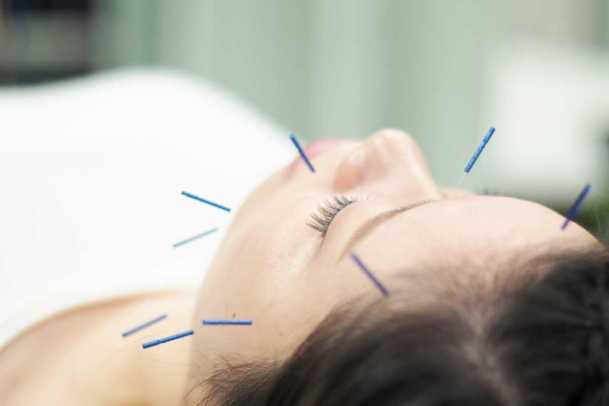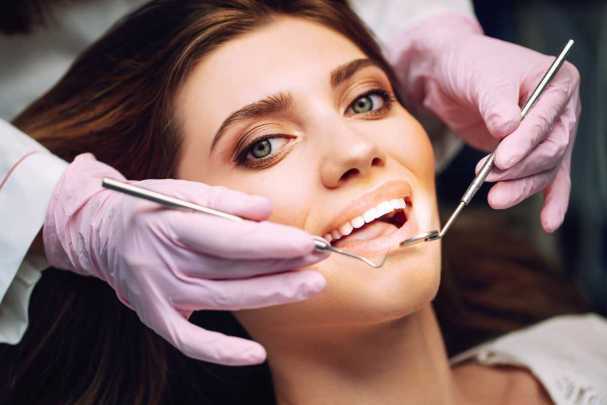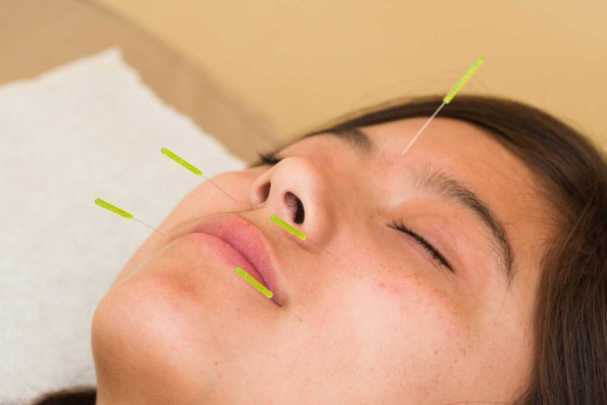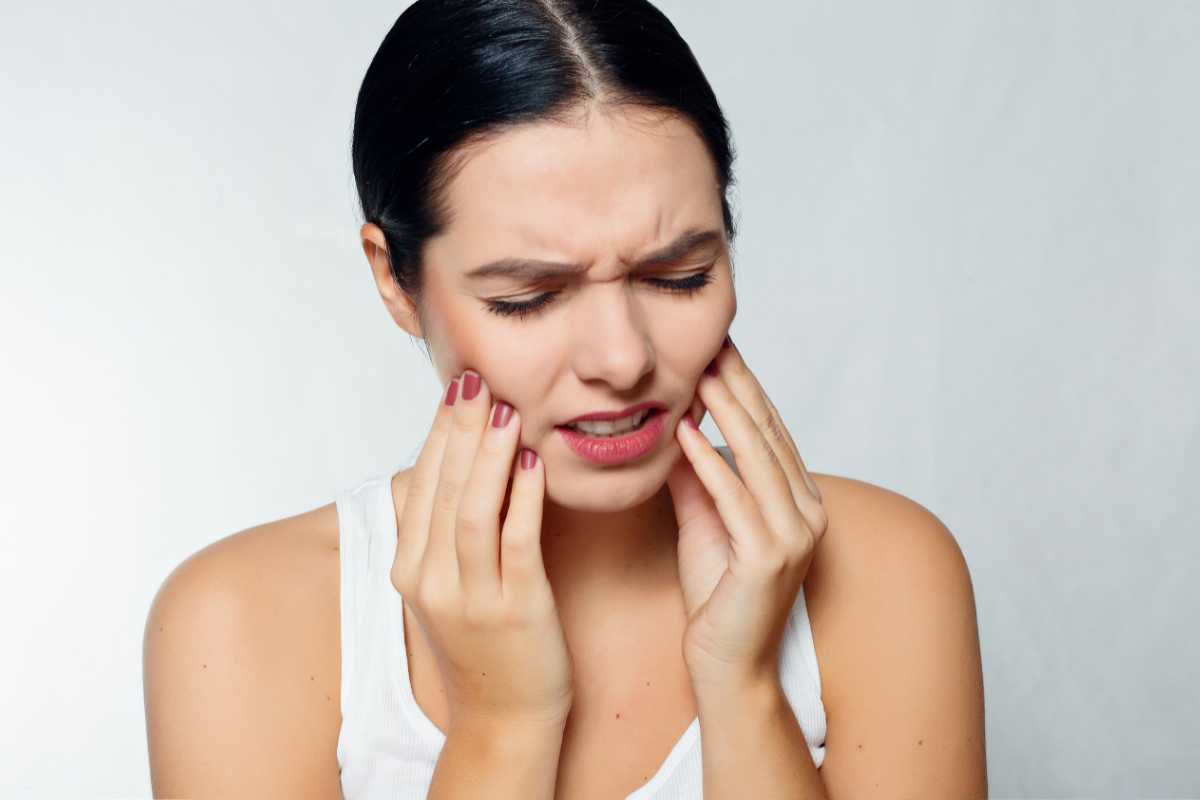Acupuncture for toothache presents a wonderfully unique avenue for easing dental discomfort, embracing an alternative to the usual pill bottle. Nestled in Irvine, CA, Family Wellness Acupuncture, led by Ryoko Takayama and her dedicated team, shines in offering a gentle touch with acupuncture to alleviate not just toothaches but various ailments as well.
There’s something genuinely intriguing about the idea that acupuncture can tap into the body’s natural pain-management centers to provide relief. It prompts one to ponder how such tiny needles can wield the power to significantly ease tooth pain.
For those curious souls looking for respite from their dental woes without leaning on conventional medications, this read might just illuminate a path worth considering.
Key Takeaways
- Acupuncture can ease toothache by hitting special spots on the body to reduce pain and stress.
- This method is as good as normal pain medicine for dental surgery with fewer side effects.
- It also helps with nausea during dental work and severe pain before getting professional help.
Understanding Acupuncture and Its Application in Dentistry

Acupuncture involves stimulating specific points on the body to relieve pain and improve overall well-being. In dentistry, it’s used to alleviate dental pain, reduce anxiety during procedures, and aid in postoperative recovery.
The application of acupuncture in dentistry demonstrates its potential as a complementary therapy for managing dental conditions.
Description of Acupuncture Points Relevant to Dental Pain
We know that acupuncture and acupressure can ease toothache by targeting special spots on the body. These spots help remove blocks and get energy moving right again. For tooth pain, some key points are really helpful.
SI18 or Quanliao is under the eyes, near the cheekbone’s edge. It tackles sinus pain and toothaches in the upper jaw. ST6, or Jiache, sits on the jawline and helps with mouth infections and more intense dental pains.
LI4, known as He Gu, found between thumb and forefinger, fights head and neck pain too. Lastly, GB21 or Jianjing lies on the shoulders – it works well against stress-related tension that might make a toothache feel worse.
These points are great because they offer relief without needing pills or shots. Tapping into them correctly can lower how much you hurt during dental work like getting crowns or bridges put in.
Plus, knowing about these spots might even make your next dentist visit less scary since they can calm nerves before procedures start.
Application of Acupuncture for Dental Pain
Knowing the right acupuncture points is just the start. Now, it’s about putting that knowledge into action for dental pain relief. Acupuncture can be a powerful tool against toothache and discomfort during dental procedures.
It works by targeting specific points like LI4, ST44, and CV23 to help ease pain. This method has shown impressive results in reducing the intensity of discomfort, making dental visits less daunting.
Acupuncture not only helps with managing pain but also plays a role in reducing anxiety related to dental appointments. Its use alongside conventional anesthesia in surgeries shows its versatility and effectiveness.
By stimulating energy meridians, acupuncture increases blood flow and releases endorphins, offering a natural way to control pain without relying heavily on medication. This approach supports overall well-being while tackling dental issues head-on.
Effectiveness of Acupuncture in Dental Surgery: Evidence from Randomized Controlled Trials

Acupuncture has shown promising results in dental surgery based on evidence from randomized controlled trials. Comparative studies have indicated that acupuncture can provide analgesic effects comparable to conventional pain medication, making it a potential alternative for managing acute dental pain.
If you want to dive deeper into this topic, you can find more information at fwaacupuncture.com
Comparative Analgesia Between Acupuncture and Conventional Pain Medication
Examining the effectiveness of acupuncture versus conventional pain medication in managing dental pain reveals intriguing insights. Our focus lies on how these two approaches compare, specifically for dental surgery pain relief.
| Aspect | Acupuncture | Conventional Pain Medication |
|---|---|---|
| Effectiveness | Proven as effective as pain medication in several studies | Widely accepted and utilized for immediate pain relief |
| Side Effects | Minimal, mainly involves discomfort at puncture sites | Can include nausea, dizziness, and risk of dependency with opioid analgesics |
| Method of Action | Stimulates body’s pain-relieving mechanisms, may reduce inflammation | Targets pain receptors and pathways in the brain to reduce pain sensation |
| Onset of Relief | Varies; some patients report immediate relief, others note gradual improvement | Generally offers quick pain relief, especially with direct administration |
| Longevity of Relief | Can offer lasting relief; some cases report sustained improvement after sessions end | Dependent on medication type; may require repeated doses for chronic pain |
| Accessibility | Increasingly available but may require specialists | Readily accessible in most healthcare settings |
Through this comparison, it’s evident acupuncture presents a viable, effective alternative to conventional pain medication, especially for patients exploring non-pharmacological options for dental pain management.
Acupuncture and Management of Acute Dental Pain
Moving from comparing acupuncture with traditional pain medication, let’s dive into how this ancient practice specifically tackles acute dental pain. Acupuncture shows promising results in managing this type of discomfort.
Key points like LI4, ST44, and CV23 are often targeted. They have a notable impact on reducing pain levels quickly.
Using these acupoints can significantly lower the intensity of acute dental pain. The process involves activating specific areas that help calm the nervous system and reduce inflammation.
For those wary of opioids or over-the-counter painkillers due to potential side effects or personal preferences, acupuncture offers a safe alternative. It not only helps manage pain but does so without reliance on drugs, minimizing risks associated with medication use in dental care scenarios.
Acupuncture for Specific Dental Conditions

Acupuncture can help manage pain from third molar surgery, control nausea during dental procedures, and also aid in emergency dental pain management. To learn more about how acupuncture can benefit specific dental conditions, click here: fwaacupuncture.com/acupuncture.
Acupuncture in Treating Pain from Third Molar Surgery
Acupuncture has been found effective in managing pain from third molar surgery. It can supplement traditional anesthesia, offering relief and promoting faster recovery. Research supports the use of acupuncture as a complementary therapy for dental surgical procedures, providing an alternative approach to pain management during and after third molar extraction.
Moving on to “The Role of Acupuncture in Controlling Nausea During Dental Procedures”..
The Role of Acupuncture in Controlling Nausea During Dental Procedures
In addition to managing dental pain, acupuncture can effectively control nausea during dental procedures. This alternative therapy helps patients feel more comfortable and less queasy while undergoing various dental treatments.
By targeting specific pressure points, acupuncture has been shown to reduce the occurrence of nausea, providing a holistic approach to improving the overall dental experience for patients.
Acupuncture plays a valuable role in creating a more positive and relaxed environment for individuals receiving dental care by mitigating the unpleasant sensation of nausea that may occur during or after procedures.
Acupuncture for Pain Management in Emergency Dental Cases
Acupuncture is now used for managing severe dental pain in emergencies. It’s considered as a potential alternative treatment to help alleviate sudden dental discomfort. When facing urgent toothache situations, acupuncture may provide relief and aid in managing the pain before seeking professional dental care.
Research indicates that it can be utilized effectively to complement traditional pain management methods in emergency dental cases.
This approach presents an additional option for people experiencing acute dental discomforts, offering a potential avenue to explore alongside conventional treatments. Acupuncture aims at providing temporary relief and could stand as part of immediate interventions during unexpected dental pain scenarios.
Safety and Potential Risks of Using Acupuncture for Dental Pain
Acupuncture for dental pain comes with some safety aspects and potential risks. It’s generally safe when performed by a qualified practitioner like Ryoko Takayama at Family Wellness Acupuncture, Irvine CA.
Nevertheless, improper needle insertion could cause bleeding and soreness at the insertion site.
Other possible risks might include fainting or feeling lightheaded during acupuncture sessions. In exceptionally rare cases, pneumothorax (a collapsed lung) can occur if needles are inserted too deeply.
Moreover, unsanitary needles may lead to infections.
Informed consent is crucial before an acupuncture session starts. This includes discussing any medical conditions or medications you’re taking, ensuring no adverse interactions occur between the treatment and your current health status.
Conclusion
Considering acupuncture for toothaches? With pressure on specific acupoints, it might help ease dental pain. Seek medical treatment promptly for severe symptoms. Don’t wait to begin your journey toward better health today!
FAQs
1. What is acupuncture for toothaches?
Acupuncture for toothaches use thin needles, placed at specific points to ease dental pain. It’s a part of traditional Chinese medicine that can help with jaw pain, cavities, and even severe tooth decay.
2. How does acupuncture ease dental pain?
The practice targets the body’s nerves and can change how the central nervous system reacts to pain. Acupuncture might reduce inflammation and improve blood flow, helping with conditions like periapical abscess or temporomandibular disorder.
3. Can I use acupuncture instead of pain meds for my toothache?
Yes, some find it an effective alternative to over-the-counter drugs like ibuprofen or aspirin. It aims at controlling pain without the need for anti-inflammatory drugs or opioid painkillers—cutting down on side effects or dependence risks.
4. Will acupuncture work immediately for my dental anxiety?
Results vary… Some people feel calmer right after their session; others may need more visits to notice changes. Acupuncture can lower stress by affecting serotonin levels in your brain — helpful during dentist visits!
5. Is it safe to get acupuncture if I’m pregnant and have a toothache?
Generally, yes — but always tell your acupuncturist you’re pregnant! They’ll avoid certain points that aren’t safe during pregnancy but can still offer relief from dental discomfort safely.
6. What should I expect during my first visit to an acupuncturist for a toothache?
Expect a chat about your health history followed by treatment with acupuncture needles targeting areas related to your dental issue—like those linked with sinusitis if that’s causing dry mouth and contributing to your problem.


0 Comments